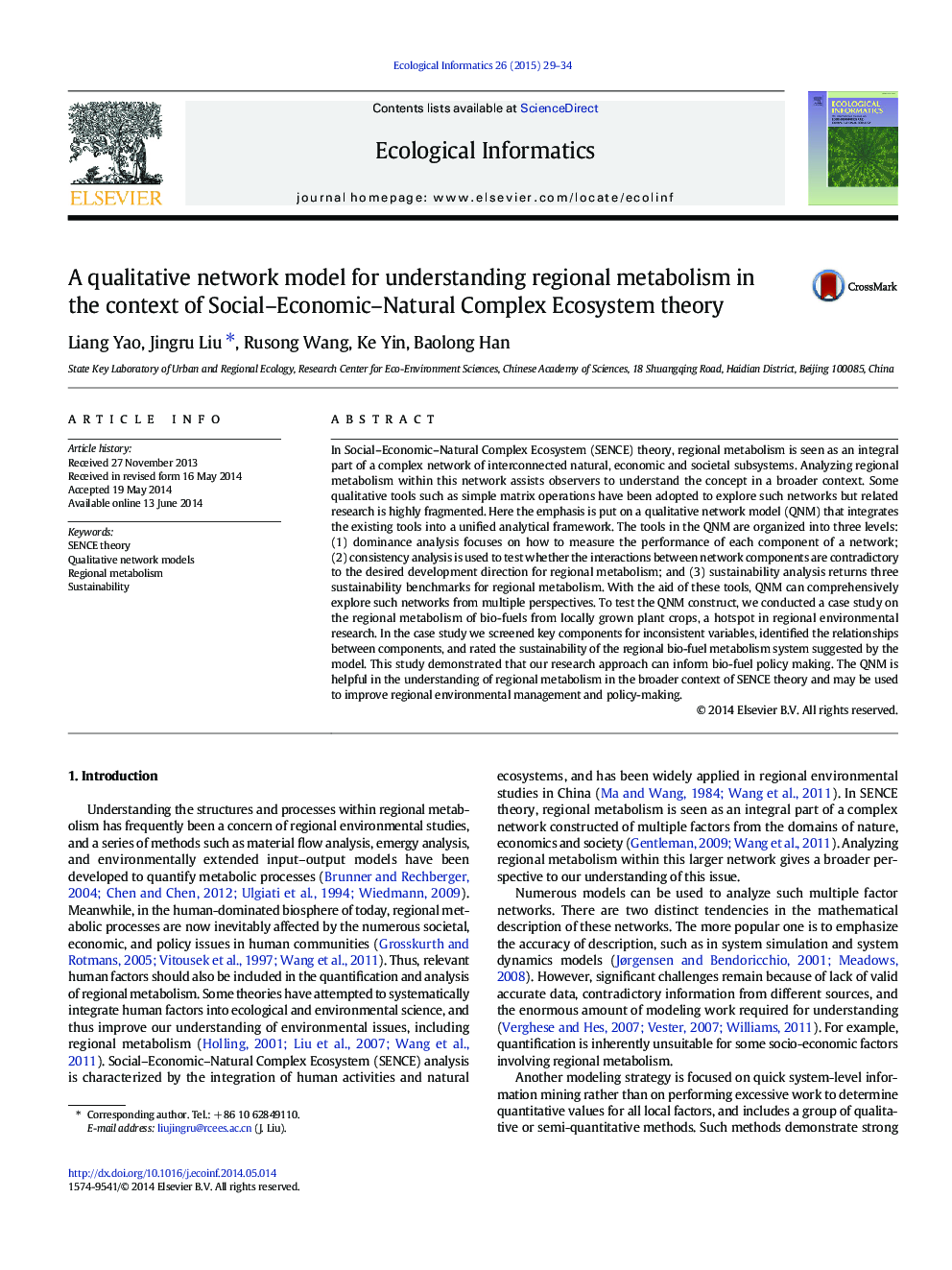| Article ID | Journal | Published Year | Pages | File Type |
|---|---|---|---|---|
| 4374853 | Ecological Informatics | 2015 | 6 Pages |
Abstract
In Social-Economic-Natural Complex Ecosystem (SENCE) theory, regional metabolism is seen as an integral part of a complex network of interconnected natural, economic and societal subsystems. Analyzing regional metabolism within this network assists observers to understand the concept in a broader context. Some qualitative tools such as simple matrix operations have been adopted to explore such networks but related research is highly fragmented. Here the emphasis is put on a qualitative network model (QNM) that integrates the existing tools into a unified analytical framework. The tools in the QNM are organized into three levels: (1) dominance analysis focuses on how to measure the performance of each component of a network; (2) consistency analysis is used to test whether the interactions between network components are contradictory to the desired development direction for regional metabolism; and (3) sustainability analysis returns three sustainability benchmarks for regional metabolism. With the aid of these tools, QNM can comprehensively explore such networks from multiple perspectives. To test the QNM construct, we conducted a case study on the regional metabolism of bio-fuels from locally grown plant crops, a hotspot in regional environmental research. In the case study we screened key components for inconsistent variables, identified the relationships between components, and rated the sustainability of the regional bio-fuel metabolism system suggested by the model. This study demonstrated that our research approach can inform bio-fuel policy making. The QNM is helpful in the understanding of regional metabolism in the broader context of SENCE theory and may be used to improve regional environmental management and policy-making.
Keywords
Related Topics
Life Sciences
Agricultural and Biological Sciences
Ecology, Evolution, Behavior and Systematics
Authors
Liang Yao, Jingru Liu, Rusong Wang, Ke Yin, Baolong Han,
